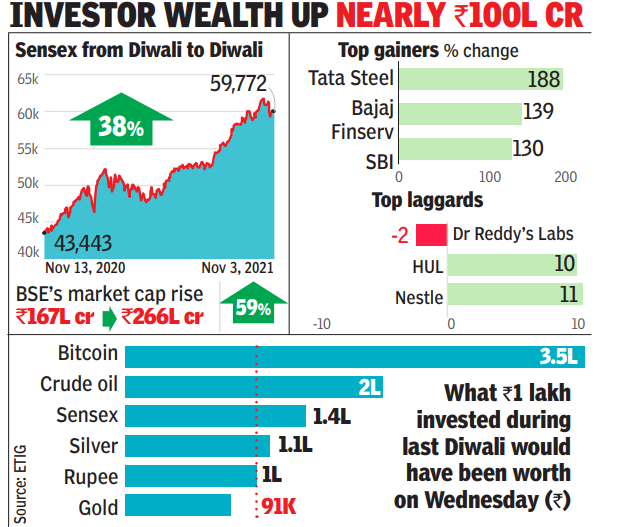The $ 2.2 billion proposed listing by a payment and financial services app symbolises investor excitement surrounding India’s digitalisation – digital payment solutions; e-commerce; logistics, says an RBI article.
The year 2021 could turn out to be India’s year of IPO with the domestic unicorns through their public issues setting “domestic stock markets on fire and global investors in a frenzy”, an RBI article said on Tuesday.
The successful Initial Public Offerings (IPOs) by new age companies in the recent months are a reflection of bullishness about Indian technology, it said.
“…growth impulse is igniting financial markets. 2021 could well turn out to be India’s year of the IPO. Debut offerings by Indian unicorns – unlisted start-ups – kicked off by a food delivery app’s stellar IPO that was oversubscribed 38 times, have set domestic stock markets on fire and global investors in a frenzy,” the central bank said in an article on the ‘State of Economy’.
The article has been authored by a team lead by RBI Deputy Governor Michael Debabrata Patra. The central bank said views expressed in the article are those of the authors and do not necessarily represent the views of the Reserve Bank.
The RBI article was referring to the IPO of Zomato which got oversubscribed 38 times.
Paytm IPO
The article further said that “the $ 2.2 billion proposed listing by a payment and financial services app symbolises investor excitement surrounding India’s digitalisation – digital payment solutions; e-commerce; logistics”.
Noting that the IPO of a specialty chemical manufacturing exporter was subscribed 180 times, the RBI said “these IPOs of new age companies arrive as bullishness about India mounts, especially around Indian tech”.
India’s tech boom, it added, has been long awaited, with strong global and domestic appetite for what are widely believed to be world class businesses in the pipeline, notwithstanding initial losses that have largely stemmed from the deep discount business models adopted by them.
These listings coincide with a broader rush by Indian companies to tap the market and the fomo (fear of missing out) factor driving investors, which have taken the benchmark indices to records, the RBI article said.
“A new era has clearly begun. It is estimated that India has 100 unicorns (Credit Suisse, 2021), with 10 new ones created in 2019, 13 in 2020 in spite of the pandemic and 3 a month in 2021 so far. They do not rely on inherited wealth or dependence on bank loans or extra-business connections, but on talent and innovative ideas. These are the children of liberalisation, not of the wealthy,” it said.
Maharaja Mac
Referring to the recent update by the UK-based The Economist of its Big Mac Index, an informal guide to currency valuation, the RBI article said that in terms of Maharaja Mac, India is currently the fourth-largest economy in the world.
“…we decided to give the Big Mac’s currency valuation powers a go by and turned it on its head. Looking at affordability or how many burgers can a currency buy relative to the US dollar, we measure how much a country’s GDP is valued in purchasing power terms,” the article said.
“Voila! The results uphold conventional wisdom – in terms of the Maharaja Mac, India is currently the fourth-largest economy in the world after China, the US and Japan.”
